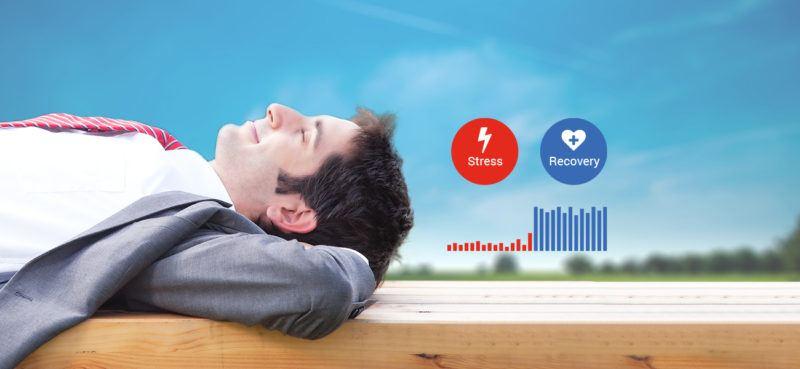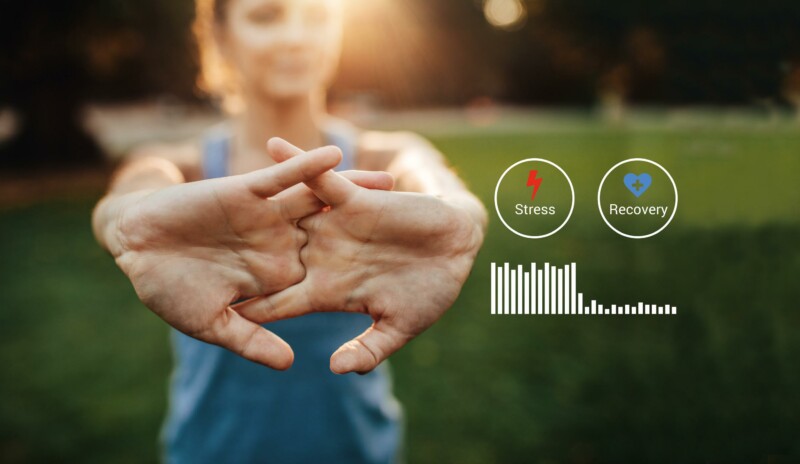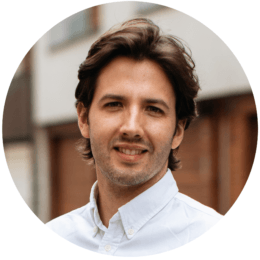
Rowan Gray is the founder of Made to Move and a qualified executive coach who supports businesses to build resilience, using Firstbeat technology. His resilience work is focused on supporting people’s capacity for change. Rowan is also training as a psychotherapist with a specialty in mental health.
Resilience has become a buzzword in recent years but it’s a topic that’s long fascinated me. My interest began when I was training for an Ironman more than ten years ago. Preparing to swim 2.4 miles, cycle 112 miles and run 26.2 miles is not the sort of distance where you turn up and wing it. So, I explored my food, mindset and how to best recover between work-outs.
Over the last ten years I’ve continued to explore physical resilience doing events like 5K races, marathons and long-distance cycling trips. More recently, I began training as a psychotherapist which is helping me to better understand emotional resilience. This passion has now become my job. I work with CEOs, directors and founders of startup companies to explore their resilience and what it means for them to thrive in their work. I also work with teams and support company-wide resilience programs.

As part of my approach I use Firstbeat’s heartbeat analytics to assess people’s resilience. The wearable technology provides amazing insights into each person’s unique areas of stress and sources of recovery. This article describes four surprising things I’ve learnt about resilience after doing more than 200 of these Firstbeat Lifestyle Assessments. The observations are based on personal accounts rather than objective data or quantitative research.
1. One Person’s Stress Is Another Person’s Recovery
Everyone gets stressed by different things. Perhaps that’s obvious but I was surprised to discover that one person’s stress is another person’s recovery. This is true of commuting, yoga, socializing with friends and countless other activities. For example, I recently watched Netflix crime thriller Breaking Bad and found each episode to be a significant stressor during the measurement. For one of my clients, watching the same show was their biggest source of recovery!
The same is true of work. For example, being in lots of meetings is a big stress for many people. For others it’s an opportunity to recover. For example, a chief executive that I recently worked with had high levels of recovery when chairing his company’s monthly risk committee. My point is to say we all perceive the world around us differently. Our response to a stressor is dependent on countless variables such as our temperament and personality or whether we’re tired, hungry or hungover.
However, I have found one exception to this rule – alcohol! Most of us associate having a drink with relaxing. In reality, drinking is a major stressor on the body. Even when it’s just a few glasses.
2. Life Is More Stressful than Work
I used to think that I was stressed at work and recovering when I wasn’t working. In fact, I’ve discovered that’s a myth. Many of my clients are most stressed when they’re not working. The reasons are nuanced and specific to each person, but I’ve observed two common explanations among my clients.
Read more about stress and recovery balance →
The first is people’s busyness. The leaders I work with typically barrel their way through the day. They are busy leading a company restructure, meeting performance targets or perhaps working in an under resourced team. Their Lifestyle Assessment reports display normal levels of stress at work and they are perceived by their peers as handling the pressure. However, their stress levels can escalate when they get home and relax. I believe this happens because slowing down allows them to mentally process the difficulties in their job.
The second is my observation that life is more stressful than work. In other words, life throws us curve balls that we need to juggle around our jobs. e.g. being a primary carer to a loved one, feeling stuck in an unhappy marriage or being a single parent and looking after two small children. Paradoxically, I have noticed that work also gives us a structure and routine that helps us to manage these same difficulties. We throw ourselves into our jobs as a form of distraction. It puts a lid on things we don’t want to deal with.

3. Exercise Isn’t Always Good for You
We all know that exercise is important for our health. But exercise doesn’t necessarily help people to build resilience. A classic example that I see with my clients is exercising too late in the day.
Exercising is a stress on the body, especially when it’s a cardio workout such as running or circuit training. Doing this at the end of the day disrupts people’s natural circadian rhythm which reduces their ability to recover in the evening. If the exercise is really intense it can also disrupt people’s ability to recover in their sleep.
Mindset also has an impact on the effectiveness of exercise. I recently worked with a high achieving executive with a daily yoga practice. This routine was one of her biggest stressors because she approached it like everything else; it was something to get done to a high standard. However, when she reduced the intensity of her workout and stopped approaching it with an achievement mindset, her yoga practice became a source of recovery.
Exercise should be appropriate to what’s already happening in your life. If you’re feeling exhausted at the end of a long week, then getting up early on a Saturday morning to cycle 80 miles without recovering properly afterwards is only going to stretch you further!
4. The Power of Purpose
When people are doing an activity that feels meaningful, they can be in recovery. I love this insight. It means we can work hard doing something we love and be in recovery at the same time.
This also implies that relaxing and recovery are not necessarily the same thing. For example, I recently discovered that I’m in recovery whenever I’m learning as an executive coach e.g. supporting a client in a complex situation, exploring team dynamics with a group or participating on a training course.
Sometimes purposeful activities are found in more surprising places. For example, one of my clients in the finance sector had high levels of recovery when she was preparing a one-off presentation on a career in finance for students. Applying her learning and insights to the benefit of other people was a source of recovery. To clarify, purpose is not to be confused with having a goal. They are not the same thing. Purpose is expression of something where your talents or capabilities are put to work in service of a bigger cause, whereas a goal is something you want to achieve.

5. Rest Is not the Same as Recovery
I have found this insight the most surprising…When you are resting it does not mean you are recovering.
The Oxford Dictionary defines rest as ‘ceasing work or movement in order to relax, sleep or recover strength’. However, I have observed countless instances among my clients where restful activities do not create recovery. For example, socializing with friends in the pub, watching TV in the evening or gardening on the weekend.
Unfortunately, it’s even possible to be asleep without being in recovery. This usually happens when people are feeling anxious or they’ve been drinking alcohol. In comparison, recovery is what happens when the autonomic nervous system (ANS) is in a parasympathetic state and releases anabolic hormones to support growth and repair of the body. In other words, recovery means you are re-energizing and bouncing back.
To be clear, restful activities do support recovery. But recovery can also happen at work or when we’re doing something that feels tough. For example, one of my clients stayed up all night to write an essay for her part-time Master’s course. She had procrastinated about doing it in the days and weeks before the deadline. However, once she got started, she had high levels of recovery. Interestingly, her recovery was strongest in the early hours of the morning when she’d nearly completed her assignment.
There’s a way to see what makes your stress levels go up and what helps you recover.
You might also be interested in

At the Heart of Stress and Recovery
Stress can be defined as a situation where the demands that a person is faced with are greater than the available resources. Stress can also be described as the body’s physical and mental adaptation to real or perceived change.

4 Simple Ways to Reduce Stress
You don’t always need long mindfulness exercises or a yoga retreat to relieve stress. Discover 4 easy things you can do to help defuse your lifestyle.

Is Hidden Stress Holding You Down? 5 Reasons You Don’t Always Recognize Stress
It is not always easy to recognize when you are suffering from too much strain or inadequate recovery. Discover the reasons for hidden stress.


